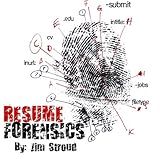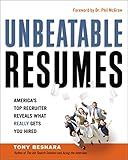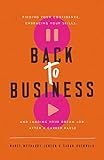Best Resume Keyword Tools to Buy in February 2026
When it comes to creating an effective resume, including relevant keywords is crucial to grab the attention of potential employers or recruiters and increase your chances of being shortlisted for an interview. Understanding how to strategically incorporate these keywords throughout your resume can greatly improve its visibility and relevance. Here are some tips on how to include relevant keywords in your resume:
- Analyze the job description: Thoroughly read the job posting or description of the role you are applying for. Identify the keywords and phrases that appear frequently and seem essential for the position. These may include specific skills, qualifications, industry-related terms, or competencies.
- Tailor your resume: Customize your resume to align with the specific job requirements and incorporate the identified keywords. Focus on highlighting your relevant experiences, skills, and achievements that match the employer's needs.
- Use a keyword-rich professional summary or objective: Begin your resume with a concise and keyword-focused professional summary or objective statement. This section should briefly highlight your key qualifications and relevant skills using the identified keywords.
- Emphasize relevant skills: Create a dedicated skills section in your resume where you list the essential skills relevant to the position. Include both hard and soft skills, making sure to incorporate the keywords mentioned in the job description.
- Include applicable certifications or courses: If you possess any certifications, licenses, or have completed specialized training courses related to the desired job, mention them in your resume. Incorporate their names and relevant keywords to further strengthen your candidacy.
- Highlight achievements using keywords: Within your work experience section, emphasize your accomplishments and achievements that demonstrate your expertise and suitability for the role. Use action verbs and incorporate industry-specific keywords when describing your responsibilities and achievements in each position.
- Incorporate keywords in your job titles: When listing your previous job titles, use specific industry-relevant keywords, especially if they align with the desired role you are applying for. This can help catch the attention of hiring managers and establish your professional credibility.
- Integrate keywords in your resume sections: Distribute keywords throughout different sections of your resume, including education, projects, volunteer experience, and extra-curricular activities. Incorporate these keywords naturally and seamlessly to enhance the overall relevance of your resume.
- Avoid excessive replication: While it is important to include relevant keywords, avoid overstuffing your resume with them or unnecessarily repeating them. Maintain a balanced approach and focus on genuine representation of your qualifications, skills, and experiences.
- Have a keyword-rich online presence: Ensure that your online professional profiles, such as LinkedIn, contain keywords related to your industry and job aspirations. This synchrony between your resume and online presence can reinforce your credibility and increase your visibility to potential employers.
Remember, while incorporating relevant keywords is essential, it is equally important to maintain a clear and well-structured resume. Strive for a balance between incorporating keywords and presenting your qualifications in an engaging and easily readable format.
How to avoid keyword stuffing in your resume?
To avoid keyword stuffing in your resume, follow these guidelines:
- Understand the job requirements: Read the job description thoroughly and identify the specific skills and qualifications the employer seeks. This will help you to include relevant keywords without overdoing it.
- Use natural language: Instead of repeatedly using a keyword, try to diversify your vocabulary. Use synonyms or different phrases that convey the same meaning. This will prevent your resume from sounding repetitive.
- Customize your resume for each application: Tailor your resume to match the specific job requirements of each position you apply for. Focus on incorporating keywords that directly relate to the job, rather than generic terms that may not have much relevance.
- Highlight relevant accomplishments and experiences: Rather than stuffing your resume with keywords, showcase your skills and experiences through specific examples and achievements. This will give you an opportunity to demonstrate your capabilities and grab the attention of the reader without resorting to keyword stuffing.
- Prioritize readability and organization: Ensure that your resume is well-structured and easy to read. Use clear headings and bullet points to list your skills and experiences. A clean and well-organized resume will make a stronger impression than one cluttered with excessive keywords.
- Avoid excessive repetition: While it's important to include relevant keywords, do not use them excessively or in every single sentence. Be mindful of how often you are repeating specific terms and try to diversify your language.
- Focus on content quality: Rather than obsessing over the quantity of keywords, focus on delivering high-quality content. Demonstrate your skills, experiences, and achievements in a concise and impactful manner. Remember, the content of your resume is more valuable than the number of keywords included.
By following these guidelines, you can avoid keyword stuffing and present a well-crafted resume that effectively showcases your qualifications and experiences.
How to review a job description and extract relevant keywords for your resume?
Reviewing a job description and extracting relevant keywords for your resume can significantly boost your chances of getting noticed by employers. Here's a step-by-step process to help you do that effectively:
- Read the job description thoroughly: Start by reading the job description carefully, understanding all the requirements, responsibilities, and qualifications mentioned.
- Identify required skills: Look for specific skills that the employer is seeking, such as technical skills, software knowledge, language proficiency, or industry-specific competencies. Note down these skills as potential keywords.
- Highlight keywords and phrases: While going through the job description, highlight any important keywords or phrases that stand out. These are usually specific words or phrases that emphasize critical qualifications or responsibilities.
- Include technical jargon: If the job description includes any technical jargon or specific terminology related to the industry or profession, make sure to note those terms down too. Using these keywords showcases your familiarity with the field.
- Identify key qualifications: Pay attention to the required qualifications mentioned, such as degrees, certifications, or years of experience. Note down the essential qualifications as they can serve as relevant keywords for your resume.
- Analyze the language and tone: Assess the tone and language used in the job description. If it emphasizes teamwork, leadership, problem-solving, or communication skills, make sure to include these keywords in your resume as they indicate qualities highly valued by the employer.
- Focus on preferred characteristics: Some job descriptions mention preferred characteristics or attributes of ideal candidates. These might include traits like adaptability, creativity, analytical thinking, or attention to detail. Incorporating these keywords shows employers how well you align with their desired candidate profile.
- Compare with your existing resume: Once you have identified all the relevant keywords from the job description, compare them with your current resume. Make sure that your resume reflects these critical keywords to demonstrate to employers that you possess the desired qualifications and skills.
- Optimize your resume: If you find that certain essential keywords are missing from your resume, incorporate them organically within the appropriate sections. This can involve updating your skills section, achievements, or incorporating these keywords into your summary or objective statement.
- Proofread and tailor: Finally, proofread your resume to ensure it accurately reflects the keywords pulled from the job description. Tailor your resume for each job you apply to, incorporating the most relevant keywords from each job description.
Remember, while keywords are important, your resume should also provide a comprehensive overview of your skills, experience, and achievements. Strive for a balance between including keywords and presenting a well-rounded representation of yourself as a candidate.
How to ensure your resume stands out with the right keywords?
- Tailor your resume to the job description: Carefully review the job posting and identify the keywords and skills mentioned. Customize your resume to include these keywords and highlight your relevant experience and abilities in those areas. This will show the hiring manager that you possess the specific qualifications they are looking for.
- Research industry-specific keywords: Familiarize yourself with the industry-specific terminology and keywords commonly used in your field. Use these keywords throughout your resume to demonstrate your knowledge and expertise in that industry.
- Include transferable skills: Identify your transferable skills that are applicable to the job you're applying for. These are skills that can be applied across different roles and industries. Incorporate these keywords in your resume to highlight your adaptability and versatility.
- Use action verbs: Start your bullet points and achievements with powerful action verbs that showcase your accomplishments and experiences. This will make your resume more dynamic and engaging.
- Use a keyword-rich summary or profile: Include a well-crafted summary or profile section at the beginning of your resume. Use keywords and phrases that summarize your skills, experiences, and qualifications. This will immediately capture the attention of hiring managers and ATS (Applicant Tracking Systems).
- Quantify your achievements: Whenever possible, quantify your achievements to demonstrate the impact of your work. Using numbers, percentages, or financial figures will make your resume more compelling and memorable.
- Research the company: Look into the company's mission, values, and culture. Incorporate relevant keywords or phrases that align with their values and needs. This shows that you have done your research and understand what the company is looking for.
- Be honest and genuine: While it's essential to incorporate relevant keywords, make sure that they accurately represent your skills and experiences. Avoid using overly generic or buzzwords that may come across as disingenuous. Be authentic and only include the keywords that are true to your abilities.
- Apply SEO principles: Consider incorporating basic Search Engine Optimization (SEO) principles into your resume. Place important relevant keywords near the top of your resume and at the beginning of bullet points. This can enhance your resume's visibility, especially if it is being scanned by ATS software.
- Proofread and edit: Finally, thoroughly proofread your resume and edit it for clarity and conciseness. Ensure there are no grammatical errors or typos. A well-crafted and error-free resume will stand out to recruiters and hiring managers, increasing your chances of success.
How to include keywords within your work experience descriptions?
Including relevant keywords within your work experience descriptions is important to make your resume or profile more searchable and demonstrate your expertise in specific areas. Here are some tips on how to incorporate keywords effectively:
- Identify relevant keywords: Start by carefully reading the job description or industry requirements to identify the most important keywords and skills they are looking for. These can be technical skills, industry-specific terms, certifications, software, tools, or any relevant keywords.
- Prioritize keyword placement: Place the most important keywords within the first few words or sentences of your work experience descriptions. This helps recruiters or hiring managers quickly identify relevant skills and qualifications.
- Show keyword context: Rather than merely listing keywords, incorporate them into detailed and meaningful sentences. This allows you to demonstrate how you applied those skills or performed specific tasks within your roles. For example, instead of stating "Proficient in Photoshop," you can write "Utilized advanced Photoshop techniques to create visually appealing graphics for client presentations."
- Highlight achievements: If possible, incorporate relevant keywords while highlighting specific achievements or accomplishments. This helps showcase your results and skills simultaneously, making your work experience more impactful. For example, instead of saying "Managed social media accounts," you can say "Drove brand engagement and increased follower count by 200% through strategic management of social media accounts."
- Include variations of keywords: Use variations or synonyms of keywords to demonstrate versatility and a broader skillset. This can also cater to different search criteria used by recruiters or employers. However, make sure these variations are appropriate and accurately describe your experience.
- Avoid keyword stuffing: While it's essential to include keywords, avoid overusing them. Keyword stuffing (repetitive and excessive use of keywords) can have a negative impact on readability and may deter recruiters or employers. Keep your descriptions meaningful and ensure keywords naturally fit within the context.
Remember, while it's crucial to include keywords, the overall content and quality of your work experience descriptions should not be compromised. Craft your descriptions meticulously, showcasing your achievements, skills, and expertise in a comprehensible and impactful way.
How to make your resume keyword-rich without sacrificing quality?
- Analyze the job posting: Review the job requirements and responsibilities mentioned in the job posting. Identify the most crucial keywords specific to the industry, role, and desired skills.
- Research industry keywords: Conduct research on industry-related keywords and commonly used terms. Look for job titles, technical skills, certifications, and keywords associated with the industry or job you're applying for.
- Incorporate keywords naturally: Seamlessly integrate relevant keywords throughout your resume. Rather than cramming all the keywords into one section, distribute them evenly across the different sections such as the summary/objective, work experience, skills, and accomplishments.
- Prioritize skills and qualifications: Highlight your key skills and qualifications that directly align with the job description. Use the exact terminology mentioned in the job posting to demonstrate that you possess the required experience.
- Use action verbs and power phrases: Enhance the impact of your resume by including action verbs and power phrases that relate to the keywords. Choose strong action verbs that describe your accomplishments and demonstrate your skills.
- Quantify achievements: Wherever possible, include measurable achievements and quantify your impact. Numbers, percentages, and statistics catch the eyes of hiring managers and applicant tracking systems (ATS), further boosting the keyword relevance of your resume.
- Tailor your resume for each application: Customize your resume to suit each job application. Modify your keywords and descriptions to specifically address the requirements of the particular position.
- Proofread and edit: Ensure that your keyword-rich resume maintains high-quality content. Avoid keyword stuffing, as it can make your resume appear unnatural. Review your resume carefully to eliminate any errors, improve readability, and enhance overall quality.
- Optimize for applicant tracking systems (ATS): Many companies use ATS software to scan resumes for specific keywords. Tailor your resume to match the keywords highlighted in the job posting. However, keep the formatting simple and organized to ensure the ATS can read your resume properly.
- Network and professional associations: Engage with industry-specific professional associations and groups. Participating in industry discussions, conferences, or workshops can expose you to more relevant keywords while expanding your professional network.
Remember, while incorporating keywords is important, quality content and impressive achievements should always remain the focus. A well-crafted resume with targeted keywords will increase your chances of getting noticed by hiring managers and recruiters in the initial screening stages.
How to showcase keywords in your resume's achievements or accomplishments?
There are several ways you can showcase keywords in your resume's achievements or accomplishments. Here are a few strategies:
- Scan the job description: Analyze the job posting or description to identify important keywords that the employer is looking for. Incorporate these keywords into your achievements or accomplishments section.
- Use action verbs: Begin each achievement or accomplishment statement with a strong action verb related to the keyword. For example, if the keyword is "leadership," you could use action verbs like "led," "managed," "guided," or "mentored" to highlight your leadership skills.
- Quantify results: Whenever possible, include specific numbers or metrics in your achievements to demonstrate the impact you made. This adds credibility to your accomplishments and highlights your expertise in the keyword area.
- Incorporate industry-specific jargon: Tailor your achievements or accomplishments to include relevant industry-specific terminology or jargon. This not only showcases your knowledge and experience in the field but also helps with keyword optimization.
- Use bulleted points: Organize your achievements or accomplishments section using bullet points. This helps to emphasize each statement and makes it easier for recruiters or hiring managers to quickly scan through the keywords and relevant details.
- Highlight relevant certifications or qualifications: If you have any certifications or qualifications related to the keywords sought by the employer, make sure to mention them in the appropriate section of your resume. This helps to reinforce your expertise and increases the visibility of the keywords.
Remember to maintain a balance between using keywords effectively and ensuring the achievements or accomplishments section reads naturally and highlights your true accomplishments. It's important to showcase your skills and experiences genuinely while using the relevant keywords to capture the attention of potential employers.





